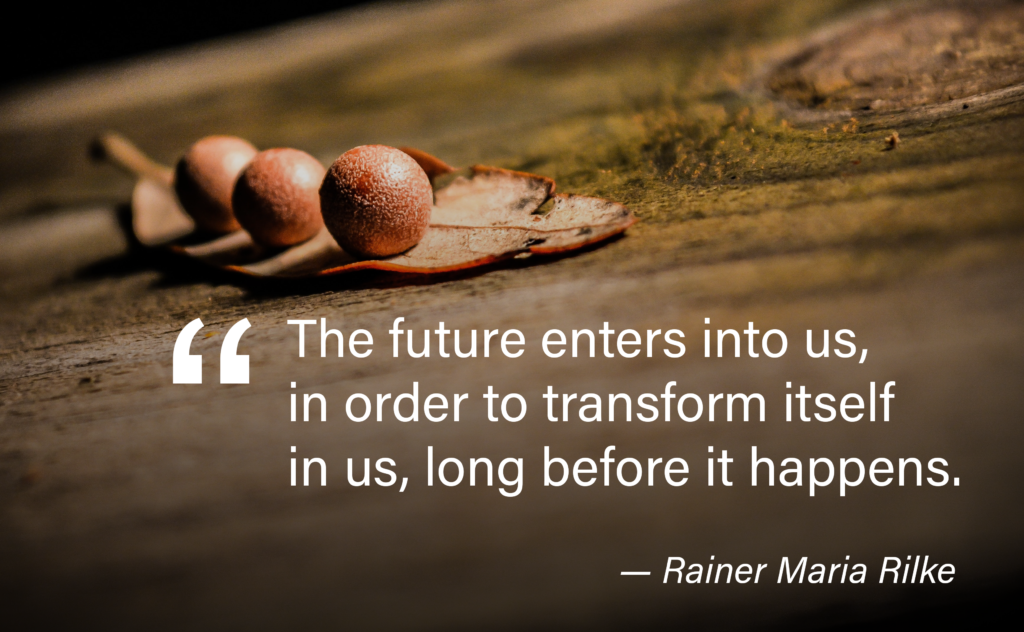For Rainer Rilke, poet and novelist, the future wasn’t a distant and nonexistent concept that could be flippantly disconnected from the present. Rather, the seeds of the future were contained within the present, and those seeds were waiting to grow and blossom.
To extend the analogy, the human race is the fertile ground for the seeds of the future, and that soil is the key to the ultimate manifestation and expression of what is waiting to emerge.
This profound idea stands in stark contrast to our modern relationship with the future. After a century of scaffolding our businesses, educational institutions, governments and societies with linear thinking, incrementalism and conservative efficiency, we now have a landscape littered with systems and structures that are out-of-touch with the open and networked thinking that permeates our changing world.
At worst, our “last century” operating systems are fighting to maintain “normalcy” or the status quo, and this failure to release the transformational nature of the future is akin to purposely weakening our immune system so that any and every disease can stunt the growth of the human body. The result is sickness, weakness and ultimately death.
Rilke’s future that “enters into us” is meant to promote healthy growth. Failing to identify and create that transformational future – or worse yet, actively ignoring or suppressing that future – is the cause of our escalating ills.
In order to produce a healthy future, we must allow present-day purpose and meaning to become future vision and aspirations.
In other words, strategically mapping the higher-order expression of our present ways of learning, working, designing and governing must be an intentional and on-going activity in our companies, schools and cities.
We must seize new business models that are in line with our era of disruptive economies and changing consumer patterns. We must reframe strategy, human resources and organizational development in an environment of passion-oriented career pathways and digital collaboration. We must rethink innovation in a world of exponential technology and intangible abundance. And we must redefine commerce, governmental policy and social architecture for the 21st Century.
As a business leader, executive, manager, entrepreneur, educator or developer, ask yourself these questions:
1. How often do we consider the long-range implications of our actions?
2. What processes do we use to test our organizational strategies against these future implications?
3. Do we regularly ask, “What’s next for our business and industry?”
4. Are we early adopters of new trends that could transform our company, or do we like to wait until an idea has gone mainstream before we try it out?
5. When we hear the words “change” or “disruption” at work, how does it make us feel?
6. In what way do we encourage our employees to be “change agents” and take an active role in moving the business forward?
7. In what way do we promote an innovative and entrepreneurial culture across our organization?
How often do we see an issue or situation and immediately think about the possibilities it could spawn for our organization’s development?
9. Do we immediately attempt to simplify complex situations, or do we consider how they might reframe or redefine our organization’s strategy?
10. How much of our organizational language or communication is “future-focused?” Can we identify five “future-focused words” that we use on a regular basis in meetings or company memos?
If these questions don’t elicit the answers you’d like, Strategic Foresight is the remedy. In the meantime, take heart in Rilke’s message:
We already have the DNA of the future inside of us – in what we think, what we hope for, and what we do. The future is the higher order purpose of our present ideas, innovations and activities. When we miss the transformative nature of the future, we really fail to understand the purpose and meaning of the present.


